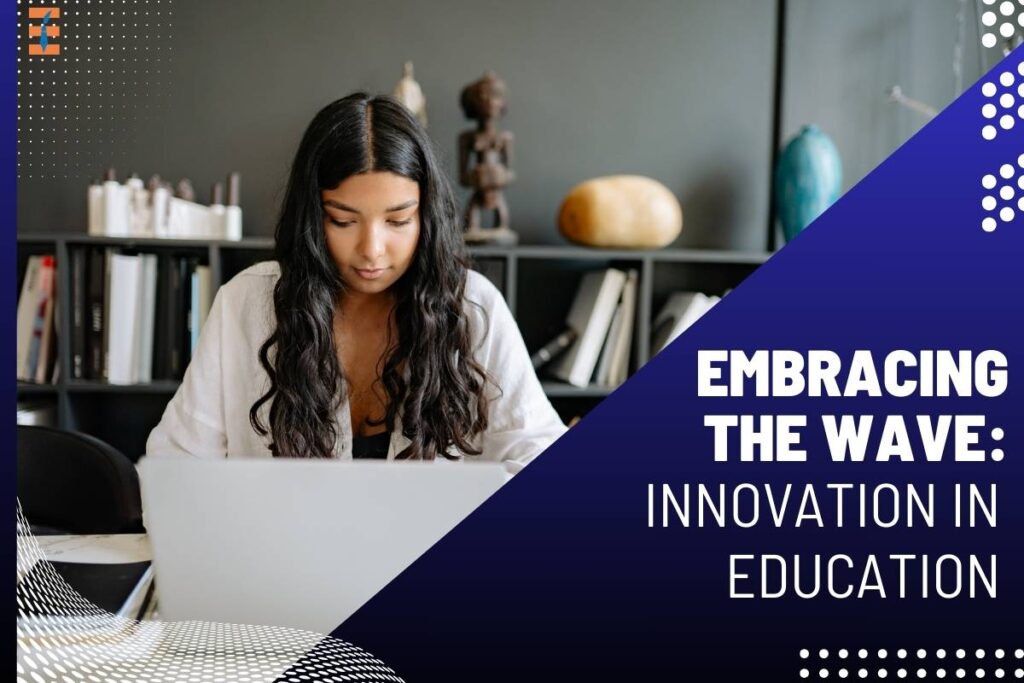Innovation in education has become a critical focal point in our rapidly evolving world. As technology reshapes industries and societies, education too is undergoing a transformation. Traditional models of teaching and learning are being challenged, and educators are exploring new approaches to engage students, enhance learning outcomes, and prepare individuals for success in the 21st century. In this article, we will delve into the concept of innovation in education, exploring its various dimensions, impact, and potential to shape the future of learning.
Defining Innovation in Education:
It refers to the development and implementation of new ideas, methods, technologies, and practices aimed at improving the quality, accessibility, and relevance of education. It encompasses a wide range of initiatives and strategies designed to foster creativity, critical thinking, collaboration, and problem-solving skills among students, while also addressing the diverse needs and challenges of learners in today’s society.
Here are 5 Types of Innovation in Education:
Innovation in education can manifest in various forms, ranging from technological advancements to pedagogical approaches and organizational changes. Some of the key types of innovation in education include:
1. Technological Innovation

Technology has revolutionized the way education is delivered and experienced. From online learning platforms and educational apps to virtual reality and artificial intelligence, technology offers new opportunities to personalize learning, provide interactive experiences, and expand access to education beyond traditional classroom settings.
2. Pedagogical Innovation
Pedagogical innovation focuses on reimagining teaching and learning approaches to better meet the needs and interests of students. This may involve adopting student-centered teaching methods, such as project-based learning, inquiry-based learning, flipped classrooms, and experiential learning, which emphasize active participation, collaboration, and real-world application of knowledge.
3. Curriculum Innovation
Curriculum innovation involves designing and implementing curricular frameworks that are relevant, interdisciplinary, and aligned with the demands of the modern workforce. This may include integrating emerging topics such as sustainability, digital literacy, entrepreneurship, and global citizenship into existing curriculum standards to prepare students for the challenges and opportunities of the future.
4. Assessment Innovation
Assessment innovation focuses on rethinking traditional methods of evaluating student learning and progress. This may involve shifting from standardized tests to more authentic and holistic forms of assessment, such as portfolios, project-based assessments, performance tasks, and peer evaluations, which provide a more comprehensive understanding of students’ knowledge, skills, and competencies.
5. Organizational Innovation
Organizational innovation involves restructuring educational institutions and systems to foster a culture of innovation, collaboration, and continuous improvement. This may include creating flexible learning environments, establishing interdisciplinary teams, fostering partnerships with industry and community stakeholders, and empowering educators to experiment with new approaches and technologies.
Impact of Innovation in Education:
The impact of innovation in education is far-reaching and multifaceted, influencing various stakeholders, including students, educators, policymakers, and society as a whole. Some of the key impacts include:
1. Improved Learning Outcomes
It has the potential to enhance student engagement, motivation, and achievement by providing personalized learning experiences tailored to individual needs and interests. Technologies such as adaptive learning algorithms, interactive simulations, and educational games can help students master concepts more effectively and retain knowledge longer.
2. Increased Access to Education

Innovation in education has democratized access to learning opportunities, breaking down barriers of time, space, and resources. Online learning platforms, open educational resources, and mobile learning apps have made education more accessible to learners around the world, including those in remote or underserved communities.
3. Enhanced Teaching Practices
It empowers educators to explore new teaching methods, tools, and strategies to better engage students and foster deeper learning. By embracing technology, educators can create dynamic and interactive learning experiences that cater to diverse learning styles and abilities, ultimately improving teaching effectiveness and job satisfaction.
4. Preparation for Future Challenges
Innovation in education equips students with the knowledge, skills, and competencies they need to succeed in an increasingly complex and interconnected world. By emphasizing critical thinking, creativity, collaboration, and problem-solving skills, innovative educational approaches prepare students to navigate uncertain futures, adapt to rapid change, and thrive in the workforce of tomorrow.
5. Societal Transformation
It has the potential to drive broader societal transformation by fostering a culture of lifelong learning, innovation, and entrepreneurship. By nurturing a generation of creative thinkers and problem solvers, education can catalyze innovation across all sectors of society, driving economic growth, social progress, and sustainable development.
Challenges and Opportunities in Innovation in Education:
While it holds tremendous promise, it also presents challenges and opportunities that must be addressed to realize its full potential. Some of the key challenges and opportunities for innovation in education include:
1. Equity and Access
Ensuring equitable access to innovative educational opportunities for all learners, regardless of socioeconomic status, geographic location, or background, remains a significant challenge. Addressing disparities in access to technology, internet connectivity, and educational resources is essential to ensuring that innovation in education benefits all students.
2. Professional Development
Supporting educators in adopting and integrating innovative practices into their teaching requires ongoing professional development and training. Providing educators with opportunities for collaboration, mentorship, and experiential learning can help build their capacity to effectively leverage technology and pedagogical innovation in the classroom.
3. Privacy and Ethics

Safeguarding student data privacy and ensuring ethical use of educational technologies are critical considerations in innovation in education. Balancing the potential benefits of data-driven decision-making and personalized learning with the need to protect student privacy and autonomy requires clear policies, guidelines, and oversight mechanisms.
4. Sustainable Funding Models
Investing in it requires sustainable funding models that prioritize long-term impact and scalability. This may involve leveraging public-private partnerships, philanthropic support, and innovative financing mechanisms to fund research, development, and implementation of innovative educational initiatives.
5. Cultivating a Culture of Innovation
Fostering a culture of innovation in education requires creating supportive environments that encourage experimentation, risk-taking, and continuous improvement. This may involve empowering students, educators, and administrators to explore new ideas, embrace failure as a learning opportunity, and collaborate across disciplines and sectors to drive innovation forward.
Conclusion:
Innovation in education holds the promise of transforming teaching and learning, preparing students for success in the 21st century, and driving broader societal transformation. By embracing technological advancements, pedagogical innovation, and organizational change, educators can create dynamic and engaging learning experiences that empower students to become lifelong learners, critical thinkers, and innovative problem solvers. As we continue to navigate the complexities of the modern world, innovation in education will play a crucial role in shaping the future of learning and unlocking the full potential of every learner.
Also Read: The Rise of EdTech Startups: Revolutionizing Education Through Innovation










